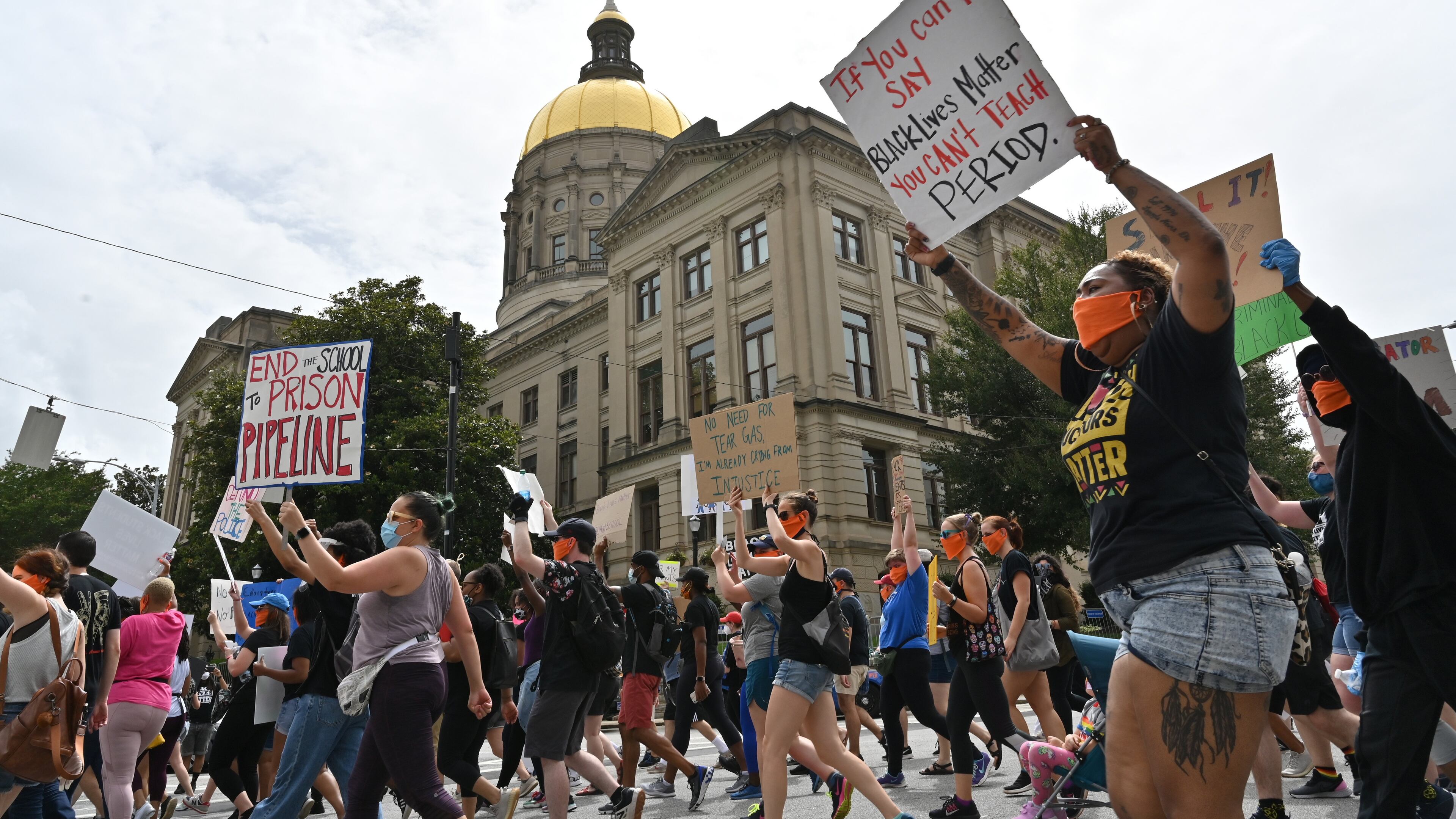Opinion: It’s one thing to discuss white privilege; it’s another to give it up

Casey Bethel, Georgia's 2017 Teacher of the Year, praises the meaningful conversations occurring about race and racism, but wonders in a guest column today whether people will follow up with the necessary actions -- especially if those actions discomfort or disadvantage them.
For instance, Bethel asks: “What happens when it becomes clear that to fund schools more equitably, money must be diverted from your neighborhood? What then?”
After 14 years of teaching high school science, Bethel is now the 6-12 science coordinator for Douglas County Schools, coordinating resources, curriculum and teacher professional development for 14 middle and high schools.
By Casey Bethel
False Start: In a race, if one runner jumps out in front of the others, a second gun sounds, and they are all brought back to the starting line. No arguing, no finger pointing, just making sure no one keeps an unfair advantage. They all start over to keep it fair.
I had that dream about track and field a few nights ago and only today did I figure it out: How do you bring a whole country back to the starting line?
I woke up this morning to a new realization. I was really excited about the racial awakening in America. Now, I am not so sure.

Certainly, many conversations are happening that haven’t been taking place. Which is great. But will meaningful action follow?
Among other things, we have lots of people reading "White Fragility" and learning about their white privilege -- but will they be willing to lay down any of that privilege? When happens when they realize that making the country fairer and more just requires stripping away that which until now has made their lives more comfortable? Will anybody make that trade?
And where is the book for middle-class Black fragility? What about us who have “overcome” -- made it to a more comfortable place in society and life?
Any of us willing to lay down some of what we have to help out our brothers and sisters who haven’t made it yet? I hear and read, perceive and anticipate differing responses to this interrogative.
For sure, to get along better we need more conversations and book studies that foster understanding. But to tear down the effects of structural, institutional racism requires large scale policy changes that will be uncomfortable for all those who either benefit from the current system or have figured out how to avoid the banana peels and make the system work for them.
What happens once it becomes clear that to fund schools more equitably, money must be diverted from your neighborhood? What then?
What if for banks to loan money more equitably to everyone, my interest rate might have to increase? For minority co-workers to get the promotion they deserve, I have to stay at my current position and current salary. What then? To teach kids more accurate history, I have to let go of the romanticized revisionist stories that I grew up with and that made me comfortable.
How many people are truly ready to make decisions like these? Until we are ready to make them in every sphere of life, we will not be able to reset this country. We will fail again to make it truly fair and equitable.
Without these decisions we will continue to settle for slightly better than things are now. Remember, Reconstruction was slightly better than slavery. Jim Crow was slightly better than Reconstruction. The Civil Rights era made it slightly better than.... I think you see where I’m going.
When will we jump off this cycle? When will we turn down what is better in search of what is right?
To do so, we must answer the question -- what are you willing to give up? It is way too easy to say “of course this should be fair. But take it from ‘them’ to make it fair.”
I end with this fable. A group of African kids were given a competition. Whichever one of them could run fastest to a basket would win all the sweets inside. When the gun sounded, they held hands and walked to the basket, preferring to share the prize. When questioned they explained, "How can one of us be happy if the others are sad?" Each of us embraces the ubuntu philosophy of Africa, which believes, "I am because We Are."

